Lawrence Livermore National Lab (LLNL) Scientists
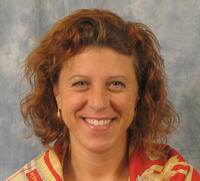
Lawrence Livermore National Labs
A capability leader at LLNL, enabling nanotechnology for small form-factor sensors and enhanced energy harvesting/generation exploiting new areas of plasmonics, metamaterials, and surface-enhanced Raman/infrared phenomena. She is an active member of the LLNL engineering mentoring program.
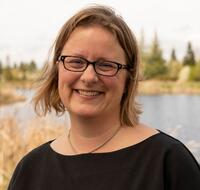
Lawrence Livermore National Labs
Group leader of the Environmental Isotope Systems at LLNL, and adjunct professor at UC Merced. She is a soil biogeochemist and microbial ecologist who has pioneered the use of NanoSIMS isotopic imaging for environmental science. She leads a multidisciplinary team that integrates biogeochemistry, stable isotope probing, advanced imaging, molecular microbial ecology, and computational modeling.
Independent Advisory Committee (IAC) Members
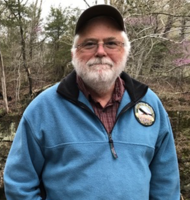
University of California, Riverside
I am a Distinguished Professor Emeritus for the Department of Microbiology and Plant Pathology at the University of California, Riverside, and also the Director of Scientific Research for Rhizosystems LLC. I work on technology transfer focusing on soil ecology and plant-microbial symbiosis that influence sustainability in agriculture and forestry. My focal work is on carbon sequestration and food/fiber production, scaling from carbon dynamics of fungal hyphae to the regional scale, using, modifying, and developing technologies from soil sensors to drones to remote sensing, and working in communities, the field and the lab. In this context, I initiated and continue to work on solar energy sustainability, particularly with siting issues and implications for agriculture and for wildland conservation. My work in this area focuses on real-time carbon exchange and energy land-use decisions in agriculture and desert ecosystems. I led the US team for the Food and Nutrition Security in the Americas: A View from the Academies of Sciences. Michael T. Clegg (coordinator) in Mexico City, published in, Food and Nutrition Security in the Americas: A View from the Academies of Sciences. Inter-American Network of Academies of Sciences. Mexican Academy of Sciences, Mexico City. https://ianas.org/wp-content/uploads/2020/07/fnb02c-1.pdf
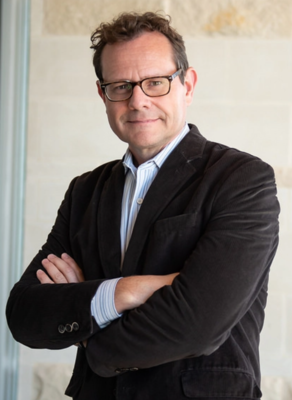
Texas A&M
Dr. James Batteas is a Regents Professor and D. Wayne Goodman Professor of Chemistry and a Professor of Materials Science and Engineering at Texas A&M University (TAMU). He earned a B.S. in Chemistry at the University of Texas at Austin in 1990 and a Ph.D. in Chemistry from the University of California at Berkeley in 1995. He is an expert in materials chemistry of surfaces and interfaces, with research activities spanning a broad range of fundamental surface and interfacial phenomena. These include studies of charge transport in organic molecular assemblies on surfaces, measured by scanning tunneling microscopy (STM) and modeled by density functional theory (DFT), nanoparticle catalysis, plasmonics, tribology, “smart” surfaces, and self-organizing nanoscale materials for device applications in optoelectronics and chemical sensing. His research in tribology focuses on the bridge between chemistry and mechanics, were his lab conducts atomic force microscopy (AFM) studies of atomic scale friction and wear of oxides and 2D nanomaterials. He had recently extended this work into fundamental studies of mechanochemistry and directs the new NSF Center for the Mechanical Control of Chemistry. He has been recognized twice by TAMU for excellence in teaching, receiving Association of Former students Distinguished Teaching awards at both the college and university levels. He was elected a Fellow of the Royal Society of Chemistry in 2012. He served as an Associate Editor (2011 – 2014) and Editorial Board Member of RSC Advances (2011 – 2021) and presently serves on the Editorial Advisory Board of ACS Central Science.
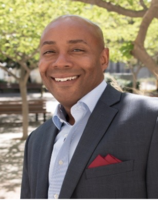
Lawrence Livermore National Labs
Tony Baylis is an executive leader and international advocate for Diversity, Equity and Inclusion (DEI). He has led DEI strategy for Lawrence Livermore National Laboratory (LLNL) since 2013, and represents LLNL’s efforts to expand DEI in science, technology, engineering, arts, and mathematics (STEAM) outreach and K-12 education. Tony joined LLNL in 2005 as the workforce and student program manager for LLNL’s Computing Directorate, following roles of increasing responsibility in the National Center for Supercomputing Applications at the University of Illinois.
In his 35-year career as a technical leader, scientific manager, and DEI strategist, Tony has worked with academia, government, industry, community, and diversity organization stakeholders to build career pathways for undeserved and marginalized populations. He has created and collaborated with colleagues in building successful DEI programs focused on increasing the representation of Women, Blacks, Hispanics/Latinx, Asian/Pacific Islanders, Native/Indigenous People, and Individuals with Disabilities through raising awareness, access, and opportunities. One program, “Broader Engagement” has become a foundational framework for the National Science Foundation. He has developed six DEI Annual Summits for the Computer Graphics Community - four in North America, and two in Asia.
Tony is a DEI consultant to top organizations and policy makers, and an expert thought leader to programs, conferences, workshops, and professional associations seeking to advance DEI initiatives. He graduated from University of Illinois Champaign-Urbana, and achieved certificates from the A3 Illinois Technology Global Leadership Program, the LLNL Leadership Program, and Cornell University’s Diversity & Inclusion Program.
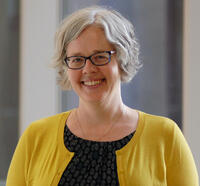
University of Wisconsin, Madison
Betsy Rolland is the Director of Team Science + Research Development for the Carbone Cancer Center and the Institute for Clinical and Translational Research at the University of Wisconsin-Madison. She holds a PhD in Human Centered Design & Engineering and a Master of Library & Information Science, both from the University of Washington, and a Master of Public Health from Johns Hopkins Bloomberg School of Public Health. Before coming to the UW, Dr. Rolland served as a post-doctoral Cancer Prevention Fellow at the National Cancer Institute, where she conducted an evaluation of a research network and studied the grants-making process. Her research focuses on coordination and collaboration in team-science projects, including how to design, build, and evaluate infrastructure to support complex, multi-investigator initiatives. Dr. Rolland also serves as the Principal Investigator for the Cancer Center Cessation Initiative (C3I) Coordinating Center, an NCI Moonshot-funded project focused on integrating smoking cessation services into clinical care at 52 NCI-designated cancer centers and as the co-I for Team Science on the NIDDK-funded Interactions Core for the Collaborating to Advance Interdisciplinary Research in Benign Urology (CAIRIBU) initiative.





